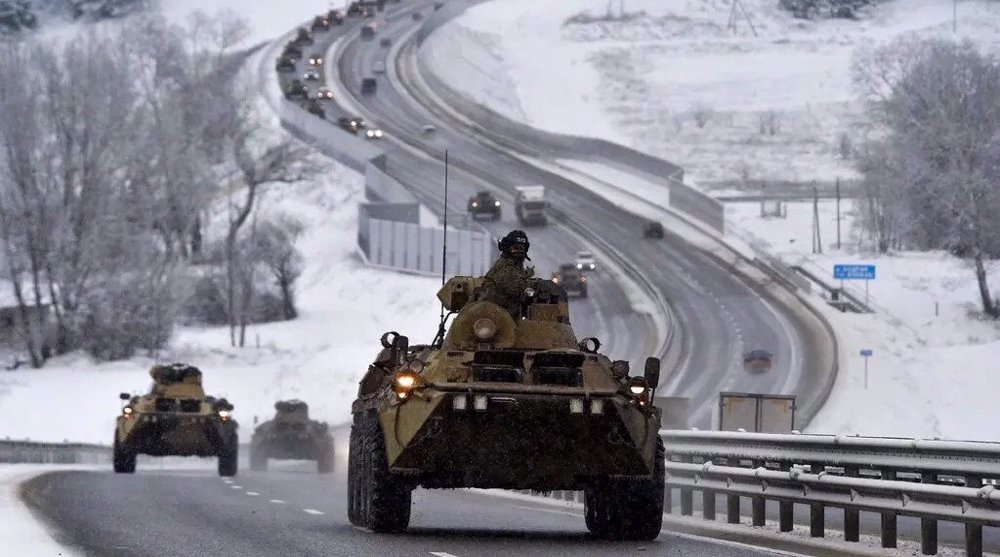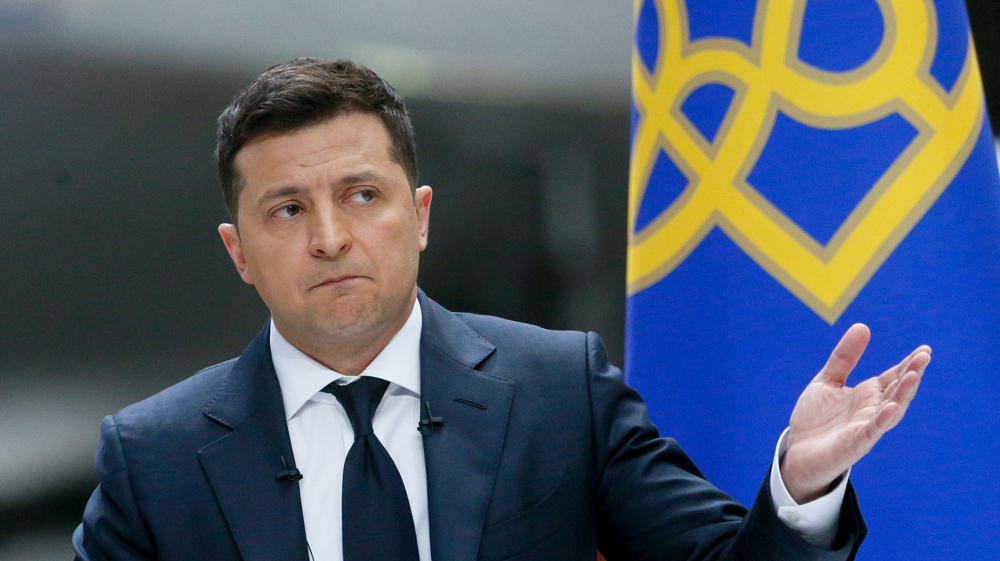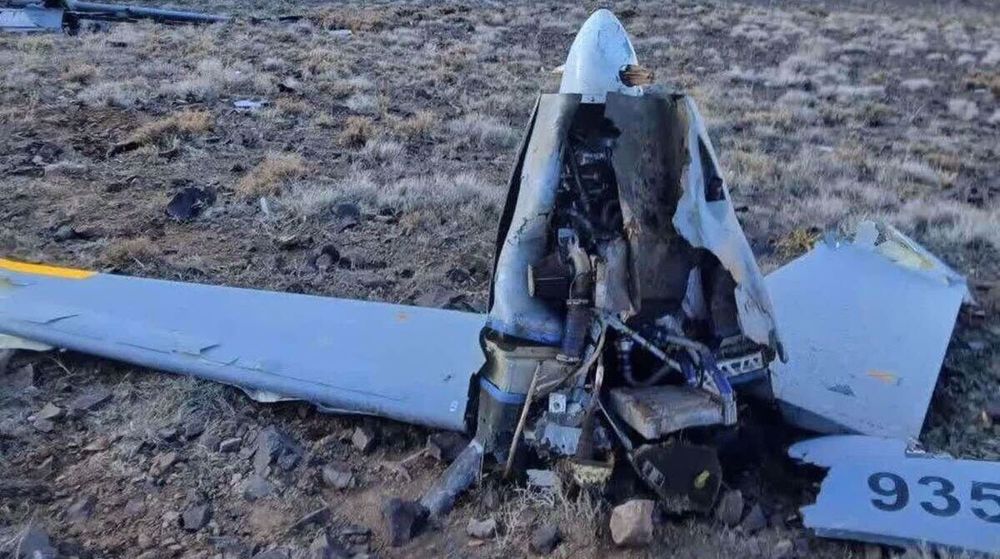Biden says to send troops after Ukraine asks West 'not to stir panic'
US President Joe Biden says he will soon deploy American military forces to Eastern Europe as part of a plan to maintain pressure on Russia amid escalating tensions over Ukraine.
"I will be moving US troops to Eastern Europe in NATO countries in the near term," Biden told reporters in Washington on Friday when asked about a timeline for doing so, adding that he had no updates on the situation in Ukraine.
The US military has already placed 8,500 troops on heightened alert to prepare for deployment in Eastern Europe and bolster the NATO presence in the region following allegations about a Russian invasion of Ukraine.
Ukrainian President Volodymyr Zelensky urged Western leaders to avoid stirring "panic" and said Ukraine's stability is of great significance as the US' panic-triggering alerts are placing a heavy burden on its economy.
“The greatest risk for Ukraine ... is the destabilization of the situation inside the country,” Zelenskyy added, asking, “Because of all these signals that tomorrow there will be war, there are signals even from respected leaders of states, they just say that tomorrow there will be war. This is panic — how much does it cost for our state?”
His remarks came as Russian President Vladimir Putin and his French counterpart, Emmanuel Macron, underlined the need for de-escalation.
Lavrov: Russia wants no war
Russian Foreign Minister Sergei Lavrov said Moscow did not want war with Ukraine. "If it is up to the Russian Federation, there will be no war. We don't want a war," he said.
He also said Russia had received proposals from the US, that were better than those it had received from NATO, however, he added that President Putin would decide how to respond to the proposals.
The top diplomat also said he expected to meet US Secretary of State Antony Blinken in the next couple of weeks.
Meanwhile, Hungarian Foreign Minister Peter Szijjarto said the US administration was in talks with the Hungarian defense ministry about a temporary deployment of its troops in the country.
Pentagon chief Lloyd Austin claimed that the main goal of deploying troops was to support NATO's quick response force with the aim of "reassuring our allies."
"Conflict is not inevitable. There is still time and space for diplomacy," Austin stressed. "Mr. Putin can do the right thing as well. There is no reason that this situation has to devolve into conflict."
Relations between Russia and the West have hit a new low in recent weeks. The US, its NATO allies, and Ukraine have accused Moscow of planning an invasion of Ukraine by amassing troops near the border of that country. Russia denies harboring plans for an invasion and says it is free to move its troops around within its own borders.
The Biden administration has been leading attempts to build a united Western front against Russia, but his attempts have been wrought with divisions among the European allies and partisan bickering at home.
America's business, according to many observers, revolves around its fierce opposition to the Nord Stream 2 gas pipeline, a vast network of offshore natural gas pipelines that runs under the Baltic Sea from Russia to Germany.
Washington is frustrated with the prospect of Europe's energy dependence on Russia at a time when the US is trying to dominate the world market by its ramped-up oil and gas production as part of its "energy war".
Many analysts believe the US sees Ukraine as an opportunity to wean Europe off Russia's gas, which explains why Washington is adamant on stoking the tensions and pursuing a confrontational policy.
In the latest standoff, Russia wants security guarantees from the West that NATO will never admit Ukraine as a member and that the US-led military alliance would curtail other actions, such as stationing troops in former Soviet bloc countries.
Russia is awaiting a written response from the Biden administration to its list of security demands, some of which Washington has previously dismissed as "non-starters."
FM Araghchi: Trump betrayed diplomacy, Americans by attacking Iran
CIA turns to Kurdish militants to destabilize Iran after war failures: Report
Iran won’t remain silent in face of aggression: Envoy
Iran sets three-day ceremony to bid farewell to late Ayatollah Khamenei
Tehran warns EU against ‘Nazi mindsets,’ slams German backing of Israeli-US aggression
Iran agreed to nuclear concessions in Geneva talks – and then US-Israel bombed
Witkoff undermined Iran talks by peddling lies to build case for military aggression: Report
Scrutiny mounts over Trump’s Iran war amid contradictory claims, soaring costs: Reports












 This makes it easy to access the Press TV website
This makes it easy to access the Press TV website